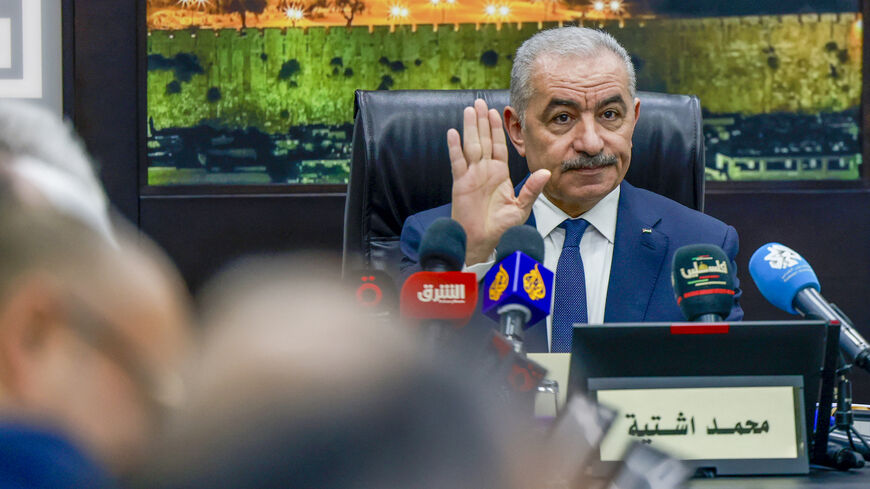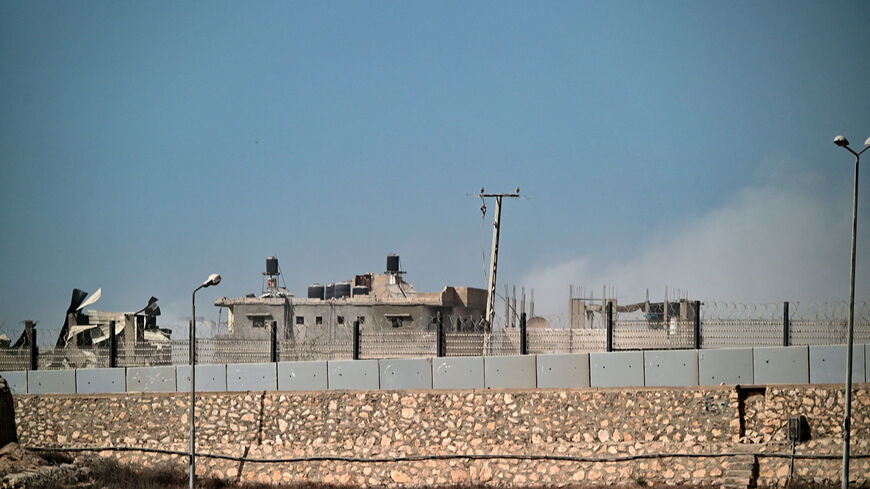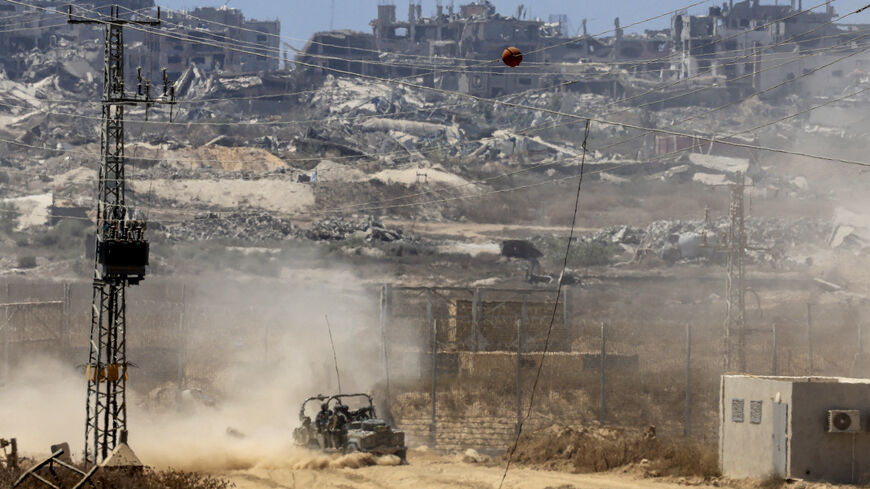Saudi Arabia hosts Palestinian PM as Gaza cease-fire talks advance
Mohammed Mustafa’s visit to Saudi Arabia comes after he stopped in Jordan and Egypt in the past days as mediators are pushing for a Gaza cease-fire.

Palestinian Prime Minister Mohammed Mustafa met with Saudi Foreign Minister Prince Faisal bin Farhan in Jeddah on Tuesday, in the first visit to Saudi Arabia since he took up his post last month.
The two officials discussed the latest developments in the Palestinian territories in light of the ongoing Israel-Hamas war in the Gaza Strip and the escalating tensions in the West Bank, the Saudi Foreign Ministry said in a post on the X platform.
Talks also touched on the efforts to reach “an immediate and sustainable cease-fire” in Gaza and increase the flow of humanitarian aid into the enclave, according to the ministry.
For his part, Mustafa praised Saudi Arabia’s support for the Palestinian cause and people, the official Palestinian WAFA news agency reported.
“Our top priority is to stop the aggression against our people, accelerate relief operations in the Gaza Strip and develop comprehensive plans for reconstruction and reform of the health and education system and infrastructure such as electricity, water and sanitation,” Mustafa said during the meeting.
The prime minister landed in Jeddah on Tuesday, where he was welcomed at the airport by Deputy Foreign Minister Waleed bin Abdulkarim Al Khuraiji.
#Jeddah | Vice Minister of Foreign Affairs, H.E. @W_Elkhereiji, received Prime Minister and Foreign Minister of the State of Palestine, Dr. Mohammed Mustafa, upon his arrival at King Abdulaziz Airport. pic.twitter.com/oXJIspmow5
— Foreign Ministry 🇸🇦 (@KSAmofaEN) April 8, 2024
Before the Israel-Hamas war erupted on Oct. 7, the US had been pushing Saudi Arabia to normalize ties with Israel but that came to a halt after the war.
Since then, Saudi officials have stressed the need to achieve Israeli-Palestinian peace and secure the rights of Palestinians before moving forward with any normalization deal.
Riyadh has also stressed the need for Palestinian Authority (PA) return to Gaza in the day after. Hosting Mustafa is another signal from the kingdom for its support of the PA.
In mid-March, Palestinian President Mahmoud Abbas appointed Mustafa, who had served as his senior economic adviser since 2005, as prime minister. The latter formed a new cabinet in late March, amid growing US pressure to overhaul the Palestinian Authority and form a new government capable of running post-war Gaza.
The war in Gaza has killed more than 33,000 Palestinians and injured over 75,000 others, according to the Ministry of Health in the enclave. Israel launched its offensive in retaliation for Hamas’ cross-border assault, during which militants killed nearly 1,200 people and took more than 240 others hostage. A one week cease-fire in November saw about 100 of those hostages freed in a swap with 240 Palestinian prisoners. Some of the remaining hostages are believed to have been killed in the fighting.
On Sunday, talks mediated by Egypt, Qatar and the United States resumed in Cairo in a bid to reach a cease-fire in the Gaza Strip and secure a prisoner swap deal.
Hamas said it was "studying" a new proposal for a temporary truce.
Under the plan, AFP reported, “fighting would stop for six weeks, 40 women and child hostages would be exchanged for hundreds of Palestinian prisoners, and up to 500 aid trucks would enter Gaza per day.”
Mustafa’s visit to Saudi Arabia comes one day after his meeting with Egyptian President Abdel Fattah al-Sisi in Cairo on Monday.
According to WAFA, the pair discussed the situation in the Gaza Strip and the West Bank, as well as the status of the cease-fire talks.
During the meeting, Mustafa thanked Egypt for its historic role in defending the Palestinian cause and pushing for a solution to end the Israeli occupation.
Sisi meanwhile reiterated his country’s rejection of any attempts to displace the Palestinian people from their land and vowed to work toward an immediate and sustainable cease-fire to protect Palestinian civilians.
Earlier on Sunday, the Palestinian premier was in Amman where he met with his Jordanian counterpart, Bisher Khasawneh, for similar talks.






